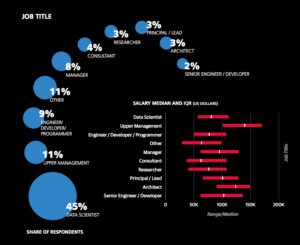Role of Analytics in Today’s Scenario!
The role of Business Analytics has evolved over the years. Although analytics has been around for a long while, it wasn’t until the last 5 to 10 years that its importance in the business field has been realized. It was in the last 10 years that technology has been revolutionized and we now produce about 2.5 quintillion bytes of data every day.
This is more data than what was collected in two years previously.
This data comes from everywhere: sensors used to gather climate information, posts to social media sites, digital pictures and videos, purchase transaction records, and cell phone GPS signals to name a few. This data is big data. What has also changed in the last decade is that we now have the means to sift through these 2.5 quintillion bytes of data in a reasonable amount of time. All these changes have major implications for organizations today. This emphasises more on the role of business analytics in today’s times.
In organizations, analytics enables professionals to convert extensive data and statistical and quantitative analysis into powerful insights that can drive efficient decisions.
Therefore, with analytics, organizations can now base their decisions and strategies on data rather than on gut feelings. Moreover, with the rate at which this data can be analyzed, organizations can keep tabs on the customer trends in near real-time. As a result, the effectiveness of a strategy can be determined almost immediately. Thus, with powerful insights, analytics promises reduced costs and increased profits.
With a sudden surge in the analytics industry, there is a tremendous increase in the demand for analytics expertise across all domains, and throughout all major organizations across the globe.
This adds to the importance of Data Analytics courses and how the youth must pursue a career in Data Analytics.
IBM’s recent study revealed that “83% of Business Leaders listed Business Analytics as the top priority in their business priority list.”
Deloitte has mentioned in its study that – Decision makers who can leverage everyday data & information into actionable insights for the growth of their organization by taking reliable decisions, will find themselves in a much better position to achieve strategic growth in their careers.
Importance of business analytics
Organizations employ Business analytics so they can make data-driven decisions. The role of business analytics helps any organisation with an excellent overview and insight into how companies can become more efficient, and these insights will enable such businesses to optimize and automate their processes. It is no surprise that data-driven companies, that also make use of business analytics usually outperform their contemporaries. The reason for this is that the insights gained via business analytics enable them to; understand why specific results are achieved, explore more effective business processes, and even predict the likelihood of certain results.
Business analytics also offers adequate support and coverage for businesses that are looking to make the right proactive decisions. Business analytics also allows organizations to automate their entire decision-making process, to deliver real-time responses when needed.
One of the apparent importance of business analytics is the fact that it helps to gain essential business insights. It does this by presenting the right data to work it. This goes a long way in making decision making more efficient, but also easy. This is another reason to make a promising career in data analytics.
Efficiency is one area of business analytics that helps any organization to achieve immediately. Since its inception, business analytics have played a key role in helping business improve their efficiency. Business analytics collates a considerable volume of data on time, and also in a way that it can easily be analyzed. This allows businesses to make the right decisions faster.
Business analytics help organizations to reduce risks. By helping them make the right decisions based on available data such as customer preferences, trends, and so on, it can help businesses to curtail short and long-term risks.
There is an information overload in today’s world and data analytics helps to cut out the clutter to help businesses make safe and smart choices.
Summary
We can conclude that Business Analytics is a field that holds a lot of potential & importance in the way any organisation operates. It indeed is the best time to make a career in Data Analytics. You can always check out our Data Analytics courses to know more.








 Topics in other words are, “a pattern of co-occuring terms in a corpus, which keeps repeating itself”. For instance
Topics in other words are, “a pattern of co-occuring terms in a corpus, which keeps repeating itself”. For instance